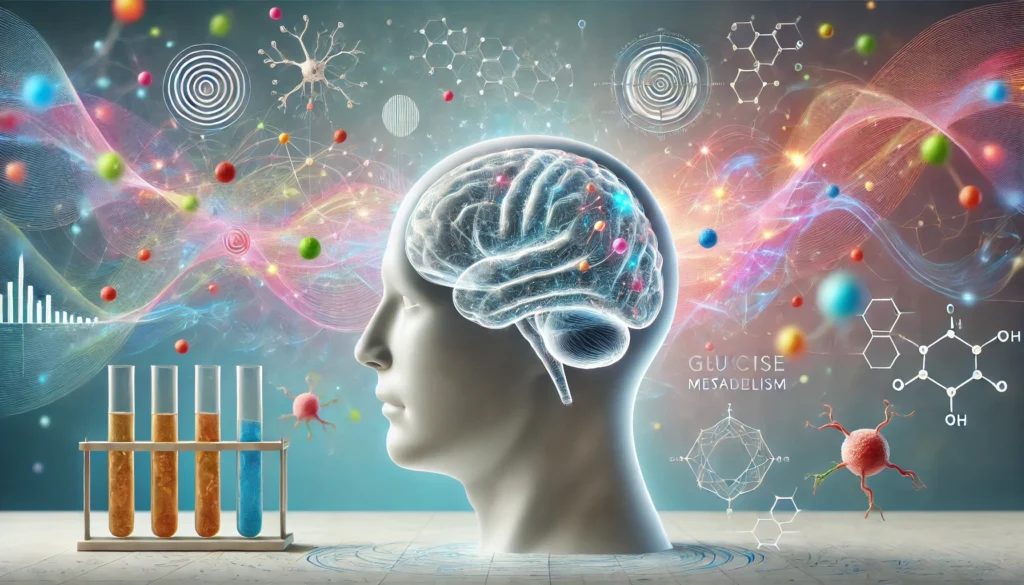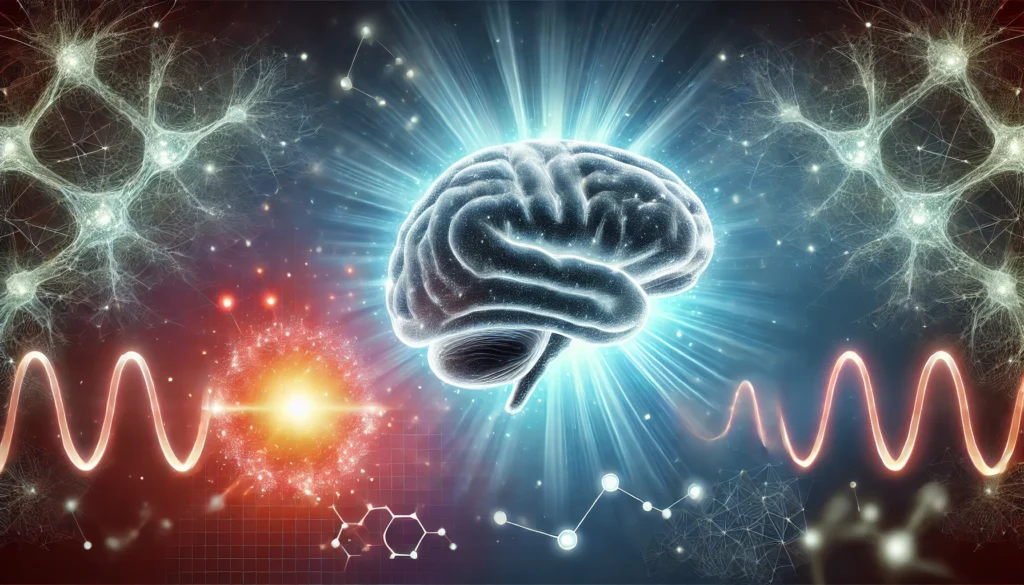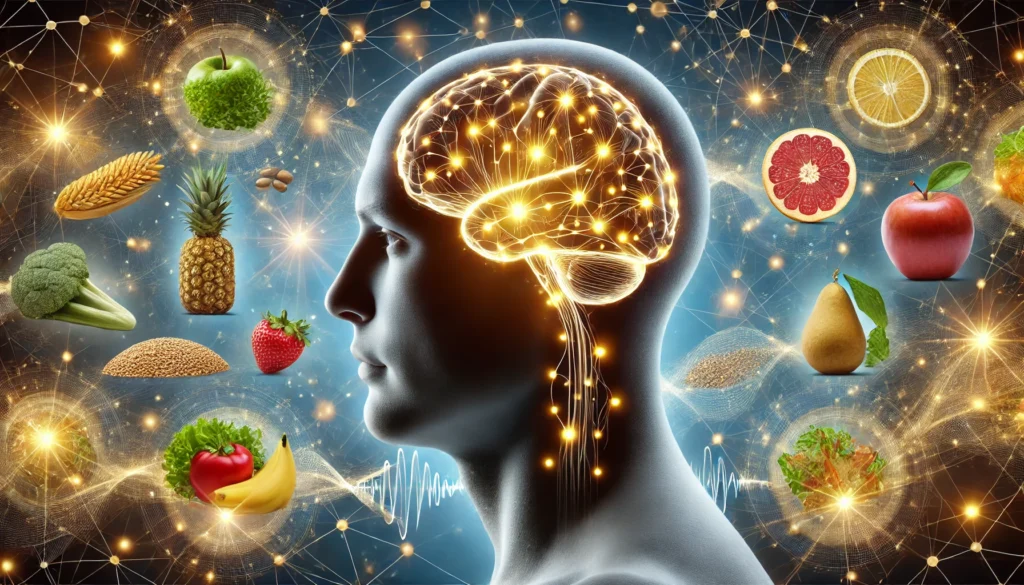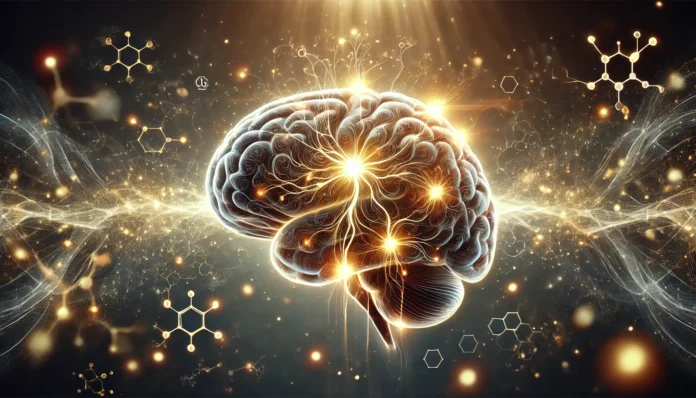In the ever-evolving landscape of neuroscience, few topics have proven as foundational to brain function and cognitive vitality as glucose metabolism. Glucose, a simple sugar derived from the foods we eat, is not merely a fuel source but a critical determinant of how well our brain performs at every stage of life. From the first fluttering synapses in infancy to the cognitive recalibrations of aging, glucose orchestrates a complex symphony of neurochemical activity, cellular resilience, and energy homeostasis. Understanding glucose brain function provides a window into both the miracles and vulnerabilities of our most essential organ.
The role glucose plays in supporting memory, decision-making, mood regulation, and learning has become a focal point for researchers seeking to preserve brain health across the lifespan. As scientists unravel the dynamic interactions between sugar and the central nervous system, they are also uncovering how disruptions in glucose metabolism may contribute to neurodegenerative diseases, cognitive decline, and emotional dysregulation. These discoveries carry profound implications for public health, nutrition, and the emerging field of personalized brain wellness.
To fully grasp how sugar to the brain becomes both sustenance and a signal, one must explore not only the biochemical mechanisms that govern glucose uptake but also the broader psychosocial and dietary patterns that influence how this essential nutrient is delivered and utilized. In doing so, we begin to see glucose not simply as a molecule, but as a narrative thread that weaves through every chapter of the human brain’s story.
You may also like: Best Brain Foods for Focus, Memory, and Longevity: What Science Says
The Brain’s Unique Energy Demands
The human brain, despite comprising only about two percent of total body weight, is a voracious consumer of energy. At rest, it accounts for roughly 20% of the body’s total energy expenditure, a proportion that only increases with mental activity. This disproportionate demand underscores just how reliant brain function is on a constant, well-regulated supply of glucose. Indeed, the brain uses glucose almost exclusively for energy in healthy individuals, and its dependence on this singular fuel highlights the need for finely tuned glucose delivery and uptake systems.
Glucose enters the brain through specialized transporters that ferry it across the blood-brain barrier, a tightly regulated gateway that protects the brain from harmful substances while permitting entry to essential nutrients. Once inside, glucose is metabolized through a series of enzymatic pathways, including glycolysis and oxidative phosphorylation, which convert it into adenosine triphosphate (ATP)—the energy currency of neurons. The process is not only efficient but also adaptive: neurons can ramp up glucose uptake in response to increased activity, such as during problem-solving or emotional processing.
Understanding how much glucose the brain uses during various cognitive states has been a key question in neuroscience. Studies employing positron emission tomography (PET) and functional MRI have shown that brain glucose utilization can increase dramatically in specific regions during tasks requiring attention, memory, or executive function. For instance, the prefrontal cortex—a hub of decision-making and planning—may experience a surge in glucose consumption during intense cognitive effort. This highlights how glucose is not only a passive energy source but a dynamically regulated element of brain performance.
When glucose delivery is compromised, either through hypoglycemia or insulin resistance, the consequences for brain function can be swift and severe. Symptoms such as confusion, irritability, and impaired memory illustrate just how intimately linked glucose brain function is to our everyday cognitive capacities. Even transient dips in blood glucose can disrupt neural circuits, particularly in areas governing attention and recall. For individuals managing diabetes or metabolic syndrome, maintaining steady glucose levels becomes a cognitive imperative as much as a metabolic one.
Glucose as a Neurochemical Modulator
Beyond its role in cellular energetics, glucose also functions as a modulator of neurochemical systems that influence mood, motivation, and learning. One of the most fascinating aspects of how sugar to the brain impacts cognition lies in its interaction with neurotransmitters such as dopamine, serotonin, and acetylcholine. These signaling molecules are crucial for the orchestration of thought, emotion, and behavior, and their activity is closely tied to the brain’s energy state.
When glucose levels are optimal, neurotransmitter synthesis and release occur more efficiently, supporting mental clarity and emotional stability. Dopamine, for instance, plays a key role in reward processing and motivation. Studies have shown that dopamine transmission can be attenuated under conditions of glucose deprivation, leading to reduced initiative and a blunted sense of pleasure. Similarly, serotonin, which modulates mood and social behavior, is influenced by the availability of glucose-derived precursors.
This intricate relationship between glucose and neurotransmission has also been implicated in mood disorders such as depression and anxiety. Individuals with insulin resistance or erratic blood sugar patterns may experience increased susceptibility to mood swings, fatigue, and cognitive fog. Understanding how does sugar affect the brain in these contexts requires a systems-level perspective that integrates neurobiology, endocrinology, and behavioral science.
Interestingly, glucose administration has been shown to enhance memory consolidation in both animal and human studies. This suggests that glucose is not merely an enabler of synaptic activity but an active participant in the encoding of experience. The hippocampus, a brain region essential for forming new memories, is particularly sensitive to changes in glucose availability. By influencing synaptic plasticity—the brain’s ability to adapt and learn—glucose emerges as a cognitive amplifier with implications for education, therapy, and even workplace productivity.
The question of what is the best source of glucose for the brain becomes especially relevant when considering the differential effects of various carbohydrates. While all digestible carbs ultimately yield glucose, their speed of absorption and glycemic impact can vary widely. Whole foods rich in fiber, such as fruits, legumes, and whole grains, provide a more sustained glucose release compared to refined sugars. This slow-release profile supports stable energy delivery to the brain and minimizes the metabolic volatility associated with spikes and crashes in blood sugar.

Glucose, Insulin, and the Aging Brain
Aging introduces new complexities into the glucose-brain relationship. As we grow older, the efficiency with which the brain uses glucose tends to decline, a phenomenon that may contribute to age-related cognitive changes. Research has shown that the brains of older adults often exhibit reduced glucose metabolism in key regions such as the temporal and parietal lobes, areas associated with memory and spatial awareness. This decline may be both a cause and a consequence of neurodegenerative processes.
The link between impaired glucose metabolism and Alzheimer’s disease has been a major focus of recent investigations. Some researchers have even referred to Alzheimer’s as “type 3 diabetes” due to its characteristic deficits in insulin signaling within the brain. Insulin, while primarily known for its role in peripheral glucose regulation, also exerts significant effects on brain function. It promotes neuronal survival, synaptic plasticity, and memory formation. When insulin signaling is disrupted, either through resistance or deficiency, the brain becomes less capable of utilizing glucose efficiently.
This raises crucial questions about how much glucose does the brain use in aging populations, and whether interventions aimed at restoring metabolic function can improve cognitive outcomes. Clinical trials exploring the use of intranasal insulin—a method that delivers the hormone directly to the brain without affecting systemic blood sugar—have shown promising results in improving memory and attention in individuals with mild cognitive impairment. These findings underscore the therapeutic potential of targeting brain glucose pathways to combat cognitive decline.
Dietary patterns also play a pivotal role in shaping how the aging brain handles glucose. Diets high in refined sugars and processed carbohydrates have been linked to increased inflammation, oxidative stress, and metabolic dysregulation—all of which can impair cognitive function. Conversely, dietary approaches such as the Mediterranean and MIND diets emphasize nutrient-dense, low-glycemic foods that support stable blood sugar levels and provide essential cofactors for glucose metabolism. These diets not only protect cardiovascular health but may also preserve neuronal integrity through optimized glucose delivery.
For older adults seeking to enhance brain resilience, identifying what is the best source of glucose for the brain becomes a practical concern. Emphasizing complex carbohydrates from whole, minimally processed foods ensures a more stable glycemic profile and reduces the risk of insulin resistance. Coupled with regular physical activity, stress management, and adequate sleep, such dietary strategies can help maintain metabolic efficiency and support cognitive longevity.
Sustaining Brain Vitality Through Glucose Awareness
As scientific understanding of glucose brain function continues to deepen, it becomes increasingly clear that glucose is far more than a mere energy molecule. It is a biochemical linchpin that supports memory, attention, emotional regulation, and resilience across the lifespan. When we consider how much glucose the brain uses daily, it becomes evident that maintaining a consistent and healthful supply is critical—not only for moment-to-moment performance but for long-term cognitive preservation.
Our exploration into how sugar to the brain affects everything from neurotransmission to aging reminds us that the brain is exquisitely sensitive to metabolic fluctuations. Whether through diet, exercise, or medical interventions, stabilizing glucose delivery may prove to be one of the most effective strategies for preserving cognitive health. This is particularly true as we age, when disruptions in insulin signaling and cellular energy utilization can accelerate cognitive decline. By addressing these imbalances early, we may be able to safeguard neural function and delay or even prevent the onset of neurodegenerative diseases.
One of the most practical takeaways from current research is the importance of choosing what is the best source of glucose for the brain. Favoring low-glycemic, nutrient-rich carbohydrates ensures that the brain receives a steady flow of energy without the inflammatory consequences of blood sugar spikes. This not only supports day-to-day mental clarity but also fortifies the brain against age-related decline. Recognizing how does sugar affect the brain in different contexts—from acute stress to chronic disease—can help individuals make smarter dietary and lifestyle decisions.
In the final analysis, the way the brain uses glucose is not static. It reflects a complex interplay between diet, hormonal regulation, neuronal demand, and individual metabolic health. By approaching this topic through the lens of neuroscience and personalized medicine, we open up new avenues for optimizing brain performance and extending cognitive longevity. Glucose, in all its simplicity, offers a profound insight into the energetic underpinnings of thought itself. And in a world where mental acuity is increasingly prized, understanding and managing our brain’s primary fuel source becomes a form of cognitive empowerment—and an essential cornerstone of lifelong brain health.

Frequently Asked Questions: How Glucose Powers Brain Function
1. Can fluctuations in glucose levels influence creativity or problem-solving skills?
Yes, emerging research suggests that glucose variability may subtly affect high-level cognitive functions like creativity and complex problem-solving. While traditional studies have focused on memory and attention, recent investigations indicate that tasks involving divergent thinking and innovation may also depend on stable glucose brain function. When glucose levels are erratic, the prefrontal cortex—the brain region involved in flexible thinking and decision-making—can experience temporary inefficiencies. These disruptions may not manifest as obvious confusion but instead as diminished originality or mental fatigue. Maintaining steady glucose delivery through slow-digesting carbohydrates may therefore enhance not only logical reasoning but also imaginative cognition.
2. How does sugar intake affect adolescent brain development?
Adolescence is a period of intense neurodevelopment, during which the brain uses glucose at even higher rates than in adulthood. However, excessive intake of added sugar to the brain during this time may have long-term implications. High-sugar diets have been associated with altered dopamine signaling and reduced hippocampal plasticity in animal studies, both of which are crucial for motivation and memory formation. This means that the quality and timing of glucose intake matter deeply during adolescence. Supporting brain uses of glucose with nutrient-dense, fiber-rich sources can promote more favorable cognitive and emotional development outcomes.
3. What is the impact of intermittent fasting on glucose brain function?
Intermittent fasting shifts the brain’s fuel preferences by encouraging metabolic flexibility. Although the brain uses glucose as its primary energy source, during fasting states, it begins to adapt by using ketone bodies for fuel. However, the transition is not instantaneous and can involve a temporary dip in mental clarity if glucose-dependent pathways are not yet fully balanced. The question of how much glucose does the brain use during fasting depends on the fasting protocol and the individual’s metabolic state. Over time, intermittent fasting may enhance mitochondrial efficiency and reduce oxidative stress, indirectly supporting cognitive longevity.
4. Are there differences in how men and women process glucose for brain function?
Yes, sex-based differences in glucose metabolism have been documented in both peripheral and central systems. Women often exhibit higher insulin sensitivity in the brain, potentially influencing how sugar to the brain is utilized during cognitive tasks. This may account for observed variations in memory performance or emotional regulation between genders under certain conditions. Additionally, hormonal fluctuations during the menstrual cycle or menopause can modulate how the brain uses glucose, highlighting the importance of tailored nutritional strategies. Understanding these physiological differences is crucial for personalized approaches to brain health.
5. Can chronic stress impair the brain’s ability to use glucose efficiently?
Absolutely. Chronic stress elevates cortisol, which over time can interfere with insulin signaling in the brain. This interference diminishes how effectively the brain uses glucose, particularly in the hippocampus and prefrontal cortex. People experiencing prolonged stress may find it harder to concentrate, recall information, or regulate emotions—not because of a lack of willpower, but due to impaired cellular metabolism. Finding what is the best source of glucose for the brain under stress involves focusing on foods that stabilize blood sugar and support adrenal health, such as leafy greens, nuts, and whole grains.
6. How does glucose delivery to the brain change during sleep?
While the brain remains active during sleep, especially during REM cycles, glucose delivery patterns shift to support neural maintenance and memory consolidation. Sleep deprivation can reduce insulin sensitivity in the brain and impair how sugar to the brain is processed the following day. This explains why a poor night’s sleep can lead to mental fog and increased cravings for high-sugar foods. Moreover, understanding what is the best source of glucose for the brain before bed—such as a small portion of complex carbs—may help support restorative sleep without causing blood sugar spikes. This balance is particularly important for those struggling with nighttime awakenings.
7. Can cognitive training enhance how the brain uses glucose?
Yes, cognitive training exercises—like puzzles, memory games, or language learning—can increase localized glucose metabolism in the brain. Over time, this may enhance neuronal efficiency and reinforce neural circuits that support long-term cognitive resilience. Functional imaging studies have shown that trained brains often exhibit more efficient glucose brain function during tasks that previously required high energy expenditure. This means that regular mental stimulation not only preserves memory but also fine-tunes how much glucose the brain uses in specific regions. Pairing cognitive training with balanced nutrition further optimizes this effect.
8. What role does hydration play in glucose metabolism and brain function?
Hydration status directly influences glucose delivery and utilization in the brain. Even mild dehydration can constrict blood flow and reduce the efficiency with which glucose reaches brain tissue. This may impair attention span, mood regulation, and processing speed. Because the brain uses glucose in conjunction with electrolytes to generate neuronal impulses, water and mineral balance are essential. People often underestimate the compounding effects of dehydration and poor glucose regulation, especially during periods of high mental demand.
9. Are there any technologies that can monitor how much glucose the brain uses in real time?
While direct, non-invasive monitoring of brain glucose utilization remains a technological challenge, advances in neuroimaging and wearable sensors are closing the gap. Technologies such as PET scans and fMRI can assess glucose brain function indirectly by measuring blood flow or metabolic activity. Emerging biosensors are being developed to track systemic glucose levels continuously, offering clues about how sugar to the brain might be fluctuating throughout the day. Though still in development, such innovations could one day allow for personalized brain energy optimization based on real-time data. This would represent a significant leap forward in preventive cognitive healthcare.
10. What future research directions are most promising for optimizing glucose brain function?
Future studies are likely to explore precision nutrition strategies tailored to individual glucose responses, especially as they relate to cognitive performance. Advances in nutrigenomics may help identify what is the best source of glucose for the brain based on genetic and metabolic profiles. Researchers are also examining how brain uses glucose differently in neurodiverse populations, such as those with ADHD or autism, where atypical energy metabolism may play a role. Finally, the development of pharmacological agents that enhance glucose uptake or mimic its signaling effects without raising systemic blood sugar could offer novel interventions for age-related cognitive decline. These directions reflect a growing emphasis on personalization and proactive brain care.

Conclusion: Glucose, Cognition, and the Aging Brain—What Science Teaches Us About Fueling Longevity
As scientific understanding continues to evolve, one truth remains clear: the brain’s intimate relationship with glucose is central to its function, adaptability, and longevity. Far from being a simple energy molecule, glucose operates at the intersection of neurobiology, metabolism, and cognition, helping to fuel the processes that sustain thought, memory, focus, and emotional regulation. As we have seen, the brain uses glucose not just for energy but also for maintaining synaptic integrity, neurotransmitter cycling, and overall neurochemical balance—especially vital in aging populations where even slight metabolic dysregulation can precipitate significant cognitive decline.
Understanding how much glucose the brain uses—and more importantly, how to ensure that supply remains both stable and efficient—is essential for anyone concerned with cognitive health across the lifespan. The narrative that sugar to the brain is inherently harmful oversimplifies the nuanced role of glucose metabolism. Indeed, the real question is not whether glucose is good or bad, but how does sugar affect the brain within the broader context of metabolic health, dietary patterns, and individual variability. When managed wisely and consumed through balanced, nutrient-rich sources, glucose can serve as a critical ally in promoting long-term mental performance and neural resilience.
Equally vital is recognizing what the best source of glucose for the brain truly is. Whole foods rich in complex carbohydrates, fiber, and phytonutrients offer a steady, regulated release of glucose without the dramatic spikes and crashes associated with processed sugars. These foods not only provide fuel but also protect the brain through antioxidant and anti-inflammatory properties, contributing to the broader goals of anti-aging and cognitive enhancement.
In the quest for extended health span, supporting glucose brain function is one of the most actionable and scientifically grounded strategies available. By aligning dietary habits with the brain’s metabolic demands and staying attuned to how the brain uses glucose over time, we can support memory, clarity, emotional well-being, and overall cognitive vitality. The key is not to fear sugar in general but to master the art of delivering the right kind of fuel at the right time. As neuroscience continues to illuminate the path forward, it becomes increasingly evident that the story of glucose and the brain is not one of excess or deprivation—but of precision, balance, and informed care for the mind as it journeys through life.
brain energy metabolism, cognitive fuel sources, how the brain uses energy, brain glucose metabolism, energy supply to the brain, mental energy and nutrition, sugar and brain activity, aging and cognitive performance, brain nutrient needs, neuronal energy flow, glucose and cognitive processes, metabolic brain function, fuel for thinking, cerebral energy demands, brain health nutrition, how the brain gets energy, healthy brain aging, diet and brain performance, brain biochemistry and energy, energy pathways in the brain
Further Reading:
Sugar for the brain: the role of glucose in physiological and pathological brain function
Brain Glucose Metabolism: Integration of Energetics with Function
Disclaimer
The information contained in this article is provided for general informational purposes only and is not intended to serve as medical, legal, or professional advice. While Health11News strives to present accurate, up-to-date, and reliable content, no warranty or guarantee, expressed or implied, is made regarding the completeness, accuracy, or adequacy of the information provided. Readers are strongly advised to seek the guidance of a qualified healthcare provider or other relevant professionals before acting on any information contained in this article. Health11News, its authors, editors, and contributors expressly disclaim any liability for any damages, losses, or consequences arising directly or indirectly from the use, interpretation, or reliance on any information presented herein. The views and opinions expressed in this article are those of the author(s) and do not necessarily reflect the official policies or positions of Health11News.


